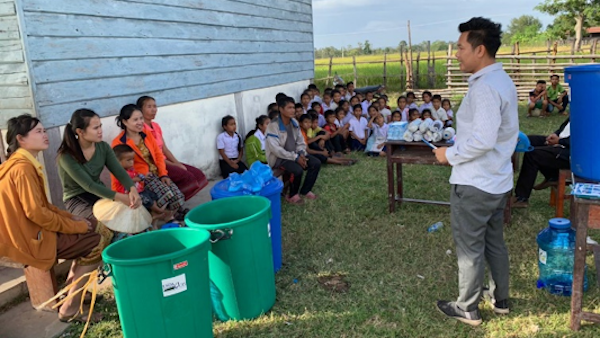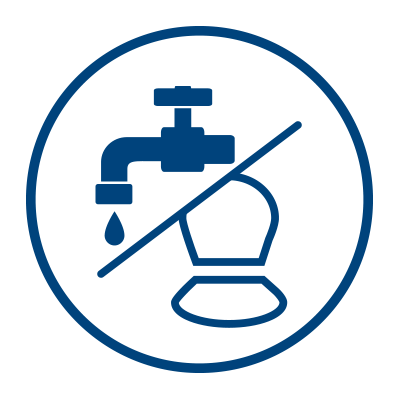Learning and Engaging All in Primary School (LEAPS) II Project

The Story
While schools are primarily centers for students' learning, they also serve as foundations for development, including social and economic safety nets, in their communities. For example, in the United States and many other countries, school feeding programs help to ensure that students from all social and economic backgrounds are well nourished, which improves those students' school attendance, academic performance, and long-term opportunities for successful livelihoods. Schools' access to clean water is essential to reliably provide safe drinking water and healthy feeding programs for their students.
Through the McGovern-Dole International Food for Education and Child Nutrition Program, the U.S. Department of Agriculture (USDA) and its implementing partners assist participating schools to implement and sustain school feeding programs, including access to food, sanitation, and clean water. In Laos, USDA provided a McGovern-Dole award valued at $27 million to Catholic Relief Services (CRS) for the Learning and Engaging All in Primary Schools (LEAPS) II Project and an aligned Potable Water Technologies award of $279,279 for an ongoing collaboration between CRS, Abundant Water (AW), and district-level officials. This collaboration has provided over 250 primary schools with innovative filters for clean water. The LEAPS II Project partners’ initial successes to provide clean water are largely due to a well-conceived technology transfer approach, emphasizing training and other sustainability requirements of the participating schools.
CRS launched this initiative with a survey of schools to help assess their current access to clean water and gauge their respective levels of interest to improve their access to clean water. Concurrently, CRS identified AW as a potential implementing partner that could provide schools with an appropriate technology for clean water. More specifically, AW offered to supply schools with low-cost ceramic water filters (locally constructed with clay, coffee grounds, and water) and silver solution that effectively clean harmful debris and pathogens from water. Once the schools with both need and interest were identified, CRS and AW provided hands-on training to school principals, teachers, students, and Village Education Development Committees on the routine usage and maintenance of the filter sets. CRS and AW engaged those same students in fun, interactive lessons on handwashing, latrine use, and other healthy habits that link clean water and good health. This initiative provided 209 filter sets and training to 63 schools in 2019, helping to ensure that more than 6,000 students have access to clean drinking water at school. Similarly, school cooks used the filtered water to prepare school meals.
Looking ahead, AW will implement their social business model to recruit and train local vendors to distribute the filter sets so that participating schools can locally purchase and easily maintain them.
Find More
Strategic Objective(S)
 Access to Safe Drinking Water and Sanitation
Access to Safe Drinking Water and Sanitation


